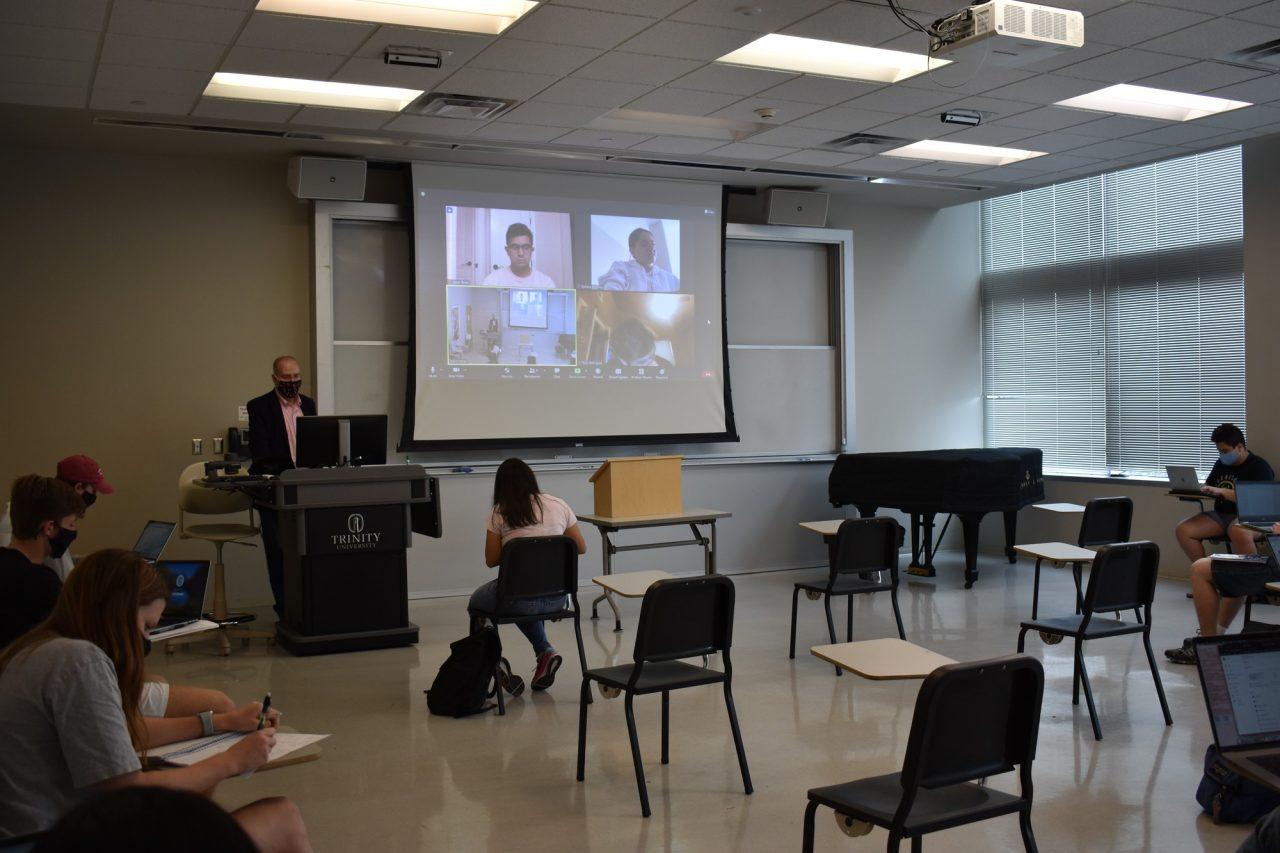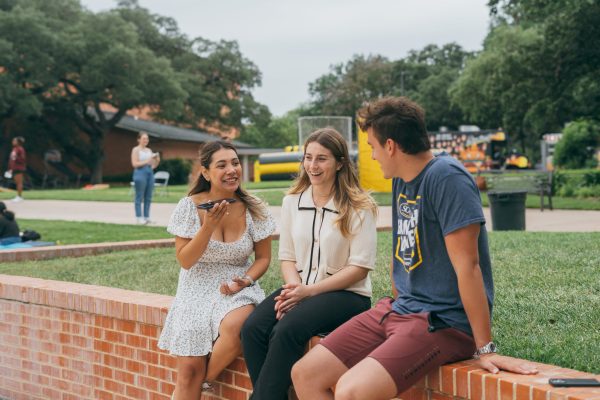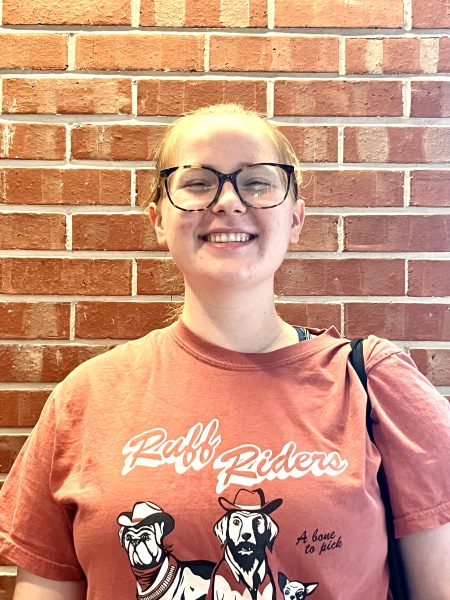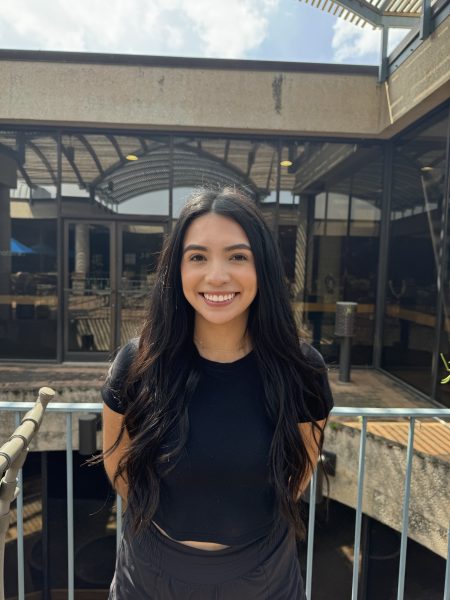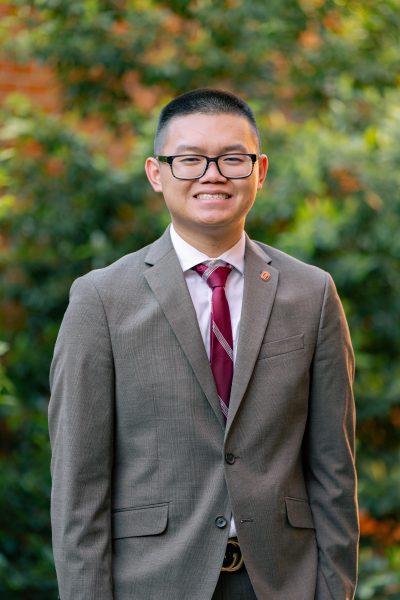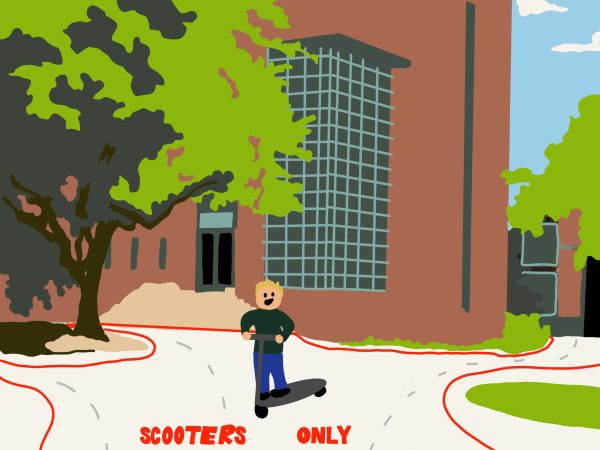A look at the first FYEs since COVID-19
photo by Claire Sammons
What does it mean to prepare students for the college experience? Every Trinity student takes an FYE dedicated to this purpose, but how is Trinity preparing first-years? And more importantly, what does that look like, especially now?
According to Dr. Kimberly Bauser McBrien, HUMA professor, preparing Trinity students for the college experience means accomplishing two goals. “The first goal is to be first-year students’ introduction to college-level thinking, writing, and reading. [This introduction] happens through courses meant to ask big questions that require interdisciplinary thinking,” said Bauser McBrien.
The second goal is social. “It’s the same group of students meeting every day of the week. Goal is to start a social network and build social inclusion in the first-year class,” said Bauser McBrien.
After one semester, it seems that FYEs are having problems similar to every other class. While Trinity hoped to give first-years the in-person experience, the online reality is not what professors and students wanted.
There are some FYE classes that are all online, and for the ones that have an in-person component, it is limited. All FYEs have at least some online classes, and even when there are in-person classes, there are still some students who have to be completely online.
Sarah Theuret is one of the first-years who has been able to attend both in-person and online classes, so she sees how those class experiences differ. “There is nowhere near the discussion in the Zoom class. I think a mixture of the temptation to zone out and the awkwardness of having to use the raise hand tool, unmuting to talk, etc.,” said Theuret.
The students are not the only ones feeling the disconnect Zoom can create. “It’s as weird to faculty as it is for students to talk into the void of the computer screen. It takes a different kind of energy. And for the social side, it is harder to get to know students. I miss the casual interaction with students,” said Bauser McBrien.
Professors are trying their best to adapt to these new challenges. Katherine Troyer, professor for the Monsters FYE, spoke about the steps she is taking to encourage class engagement. “We have a shared Google Drive. I started doing this in spring, and I’m going to do it forevermore. I’m using the chat feature a lot more. My students team teach with me for a day. They lead the class with an activity, thesis, and all of that for 20 to 30 minutes,” said Troyer.
Professors have also found new teaching opportunities in this largely online format. “One thing a lot of people have been taking advantage of is that we don’t have to pay as much for guest speakers and it’s a lot easier for them,” said Troyer.
Another unique byproduct of this semester is the early end to FYEs. The FYEs will be wrapping up right before Thanksgiving break.
Only the administrators know why they decided to end the FYEs early, but the professors can give their takes on the reasoning. “I think the idea is that [first-years] could have the whole FYE in-person experience and be done before the transition to online,” said Bauser McBrien.
From the students’ perspective, this decision has benefits and drawbacks. What college student does not enjoy having something taken off their plate? “I’m glad it adds time to the break and I won’t have to study during Thanksgiving,” said Theuret.
On the other hand, what college student does not want more time to work on an assignment? “Looking back, I had time to finish everything, but a couple more weeks would have made the process much easier,” said Theuret.
FYEs are meant to challenge first-years, but more than ever before, this semester challenged their resilience. And possibly more than any other class, this group of first-years have proven what they can do.
“FYE students are some of the most earnest hardworking classes that Trinity has. Despite the very hard semester and feeling overwhelmed, [teaching Monsters] is one of the few beacons for me, and I hope it is for the students,” said Troyer.

